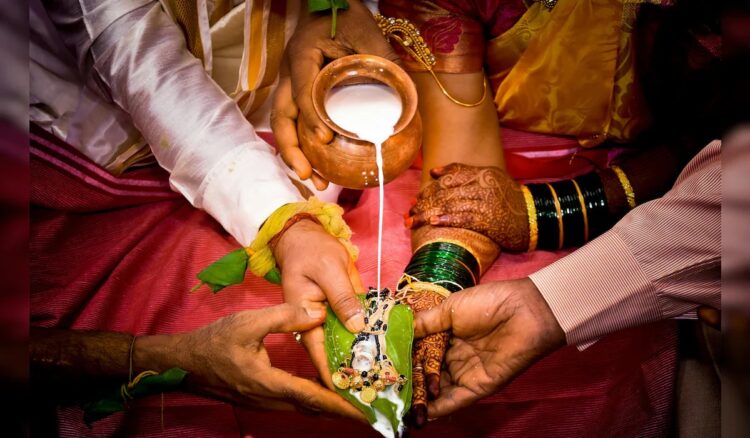The Supreme Court has reinforced the necessity of adhering to customary rites and ceremonies prescribed under the Hindu Marriage Act for a marriage to be deemed valid.
In a recent ruling, the bench, comprising Justices BV Nagarathna and Augustine George Masihthe, emphasized that a Hindu marriage is a ‘sacred sacrament’ and not merely a social event.
According to Section 7 of the Hindu Marriage Act, marriages must be solemnized in accordance with customary rituals, such as the saptapadi (seven steps around the sacred fire), for legal validity. Failure to perform these rituals renders the marriage invalid, regardless of registration.
Highlighting the significance of marriage as a sacred bond, the court reiterated that marriages are not commercial transactions but are foundational events that establish a lifelong relationship between spouses. It urged individuals to consider the sanctity of marriage before entering into it.
While registration facilitates proof of marriage, it does not confer legitimacy if the ceremony was not conducted as per the Act. The court’s remarks came during a hearing of a case where the parties sought to nullify their marriage due to lack of proper solemnization.
This ruling underscores the significance of upholding traditional customs in Hindu marriages, ensuring their sanctity and legal validity.

















Comments